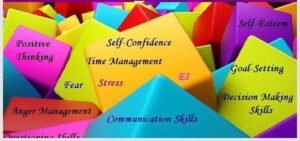14 Things Women Wish Their Doctors Told Them About Turning 50
Turning 50 is a significant milestone in a woman’s life, marking a transition that comes with both physical and emotional changes. As women navigate this phase, there are crucial aspects they often wish their doctors would openly discuss with them. From hormonal shifts to bone health and beyond, here’s a comprehensive guide to what women wish their doctors would tell them about turning 50.
Introduction: Embracing Change and Open Communication
Reaching the age of 50 is a profound journey that brings about both physical and emotional transformations. It’s a time when women reflect on their health and well-being, and having open communication with their healthcare providers becomes paramount.

Menopause, a Natural Transition:
Women experience hormonal changes, primarily a decline in estrogen and progesterone, leading to various symptoms such as hot flashes, night sweats, and mood swings. Understanding this natural transition is key to managing its effects.
Common Symptoms Unveiled:
Hot flashes, those sudden surges of warmth, and night sweats disrupting sleep can be overwhelming. Mood swings and changes in libido are also part of the hormonal rollercoaster. Acknowledging these symptoms is the first step toward effective management.
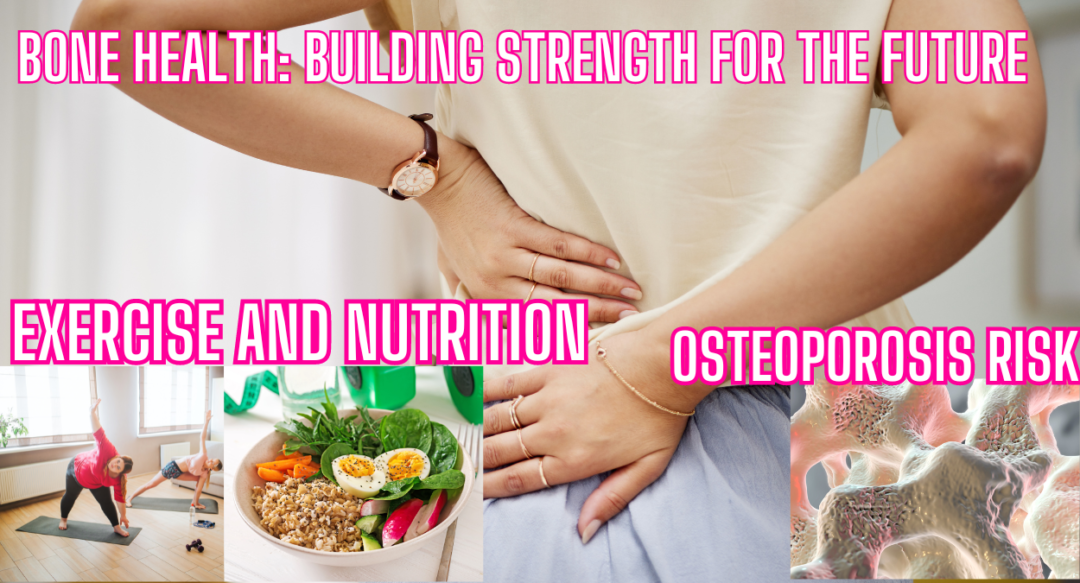
2. Bone Health: Building Strength for the Future
Osteoporosis Risk:
Postmenopausal women face an increased risk of osteoporosis due to decreased estrogen levels. Ensuring strong bones is crucial for overall health.
Exercise and Nutrition:
Incorporating weight-bearing exercises and maintaining a diet rich in calcium and vitamin D are vital steps in promoting bone health and preventing fractures.
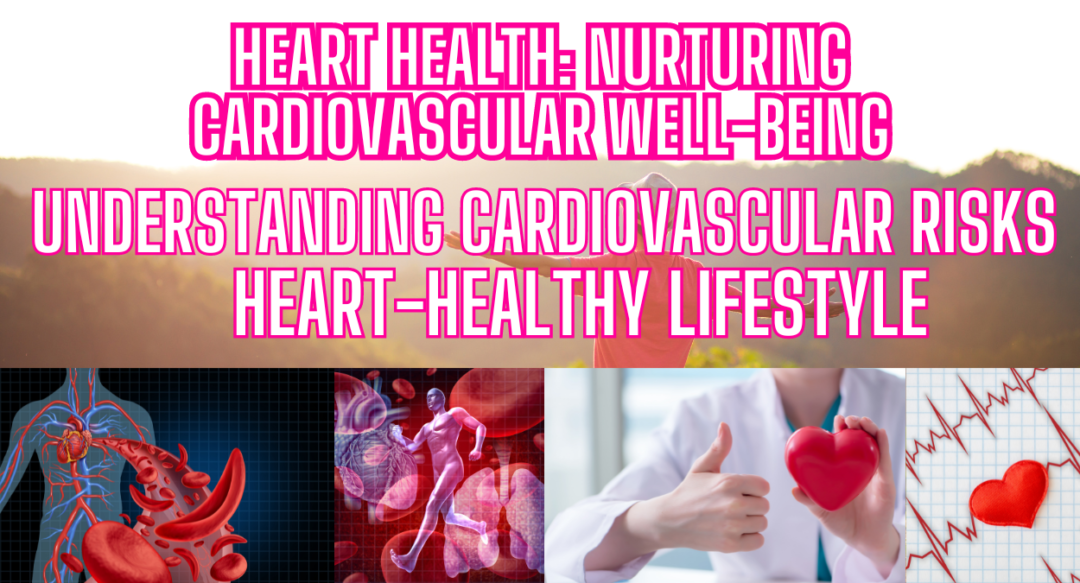
3. Heart Health: Nurturing Cardiovascular Well-being
Understanding Cardiovascular Risks:
Hormonal changes post-menopause can impact heart health. It’s essential to be proactive in maintaining cardiovascular well-being.
Heart-Healthy Lifestyle:
Regular exercise, a balanced diet, and monitoring blood pressure are key components of heart health post-50.
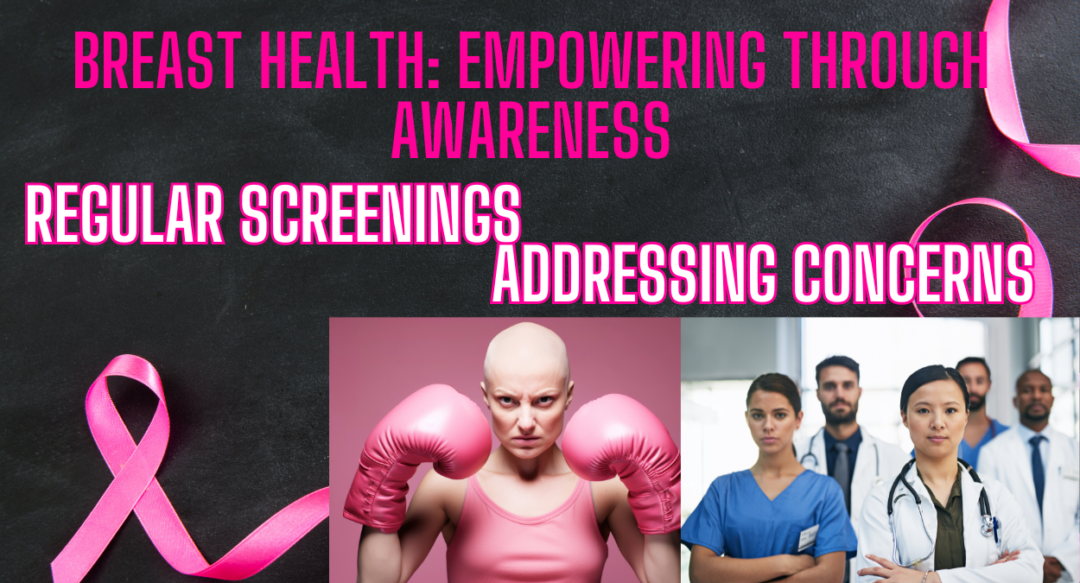
4. Breast Health: Empowering through Awareness
Regular Screenings:
Mammograms and self-exams are crucial for early detection of breast issues. Women should be encouraged to stay vigilant about their breast health.
Addressing Concerns:
An open dialogue about any changes or concerns related to breast health fosters a proactive approach to well-being.
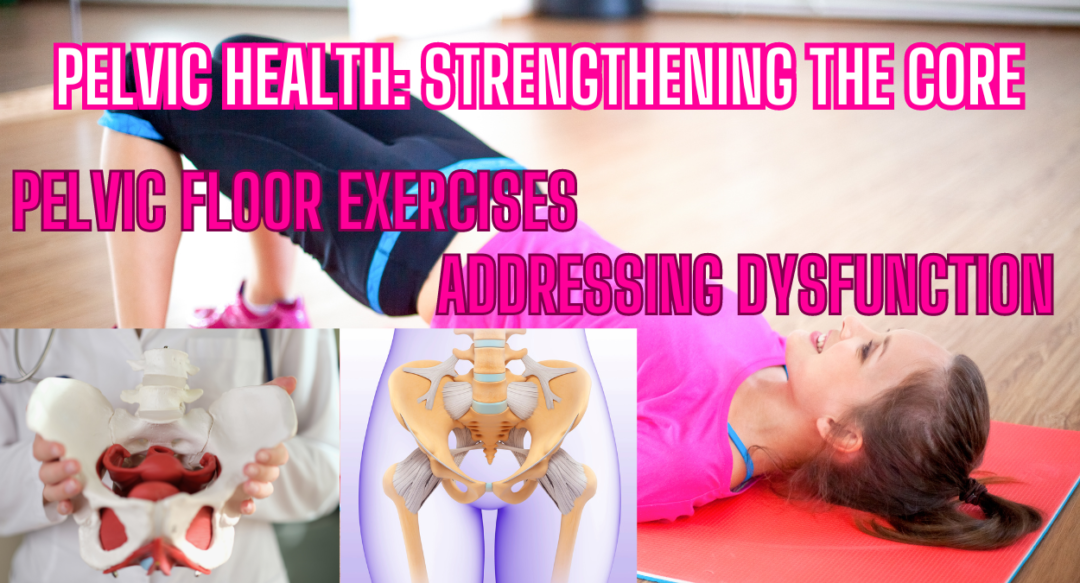
5. Pelvic Health: Strengthening the Core
Pelvic Floor Exercises:
Discussing exercises to maintain pelvic floor strength is essential. Awareness and preventive measures can help address pelvic health concerns.
Addressing Dysfunction:
Symptoms of pelvic floor dysfunction should be openly discussed, providing women with the necessary guidance and support.

Libido and Intimacy:
Changes in libido are common during this phase. Encouraging open communication about sexual health fosters a healthy and understanding approach to intimacy.
Addressing Vaginal Dryness:
Vaginal dryness is a common concern. Discussing options for managing this symptom ensures a more comfortable and fulfilling sex life.

7. Colon Health: Safeguarding Against Colorectal Cancer
Regular Screenings:
Routine screenings for colorectal cancer become increasingly important. Women should be informed about the significance of early detection.
Promoting Digestive Health:
Discussing dietary choices and lifestyle factors that contribute to colon health is crucial in preventive care.
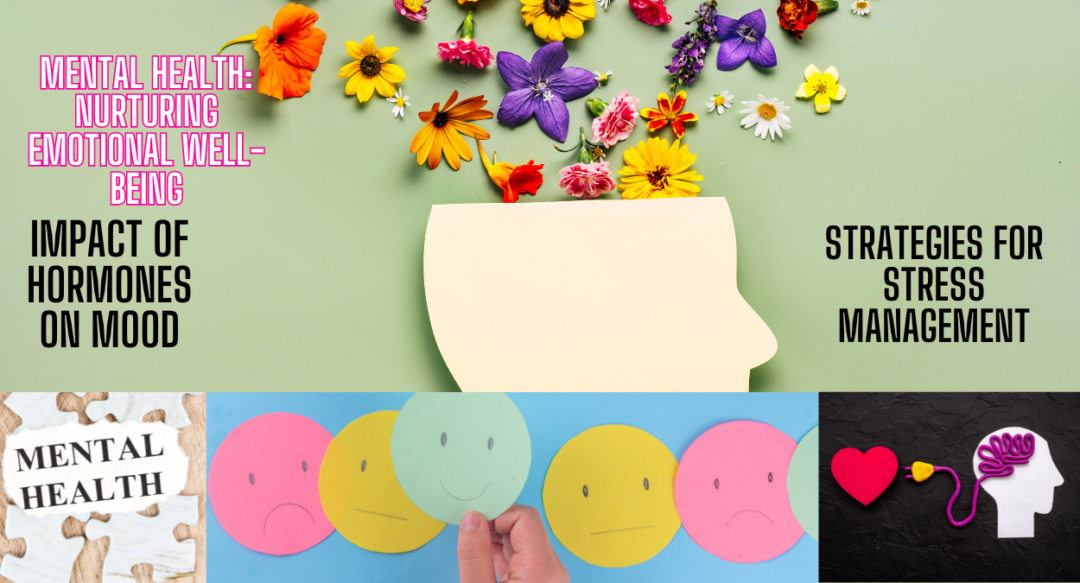
8. Mental Health: Nurturing Emotional Well-being
Impact of Hormones on Mood:
Hormonal changes can affect mood. Recognizing and addressing mental health concerns is a crucial aspect of holistic well-being.
Strategies for Stress Management:
Providing strategies for managing stress and promoting mental well-being empowers women to navigate emotional changes.
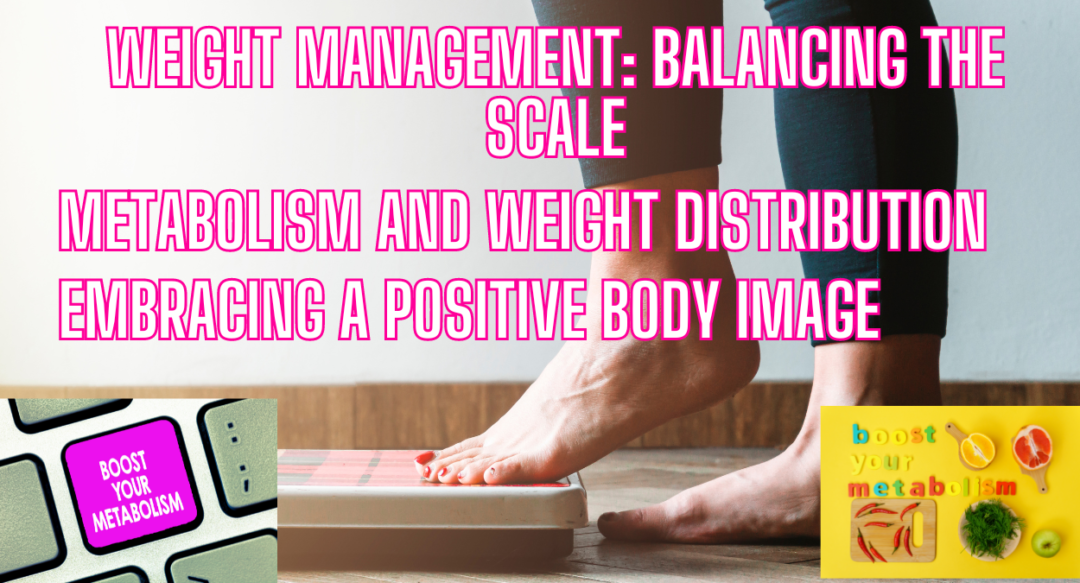
9. Weight Management: Balancing the Scale
Metabolism and Weight Distribution:
Changes in metabolism and weight distribution are common. Encouraging a healthy lifestyle with exercise and a balanced diet supports weight management.
Embracing a Positive Body Image:
Promoting a positive body image and self-acceptance is integral to a woman’s overall well-being in her 50s.
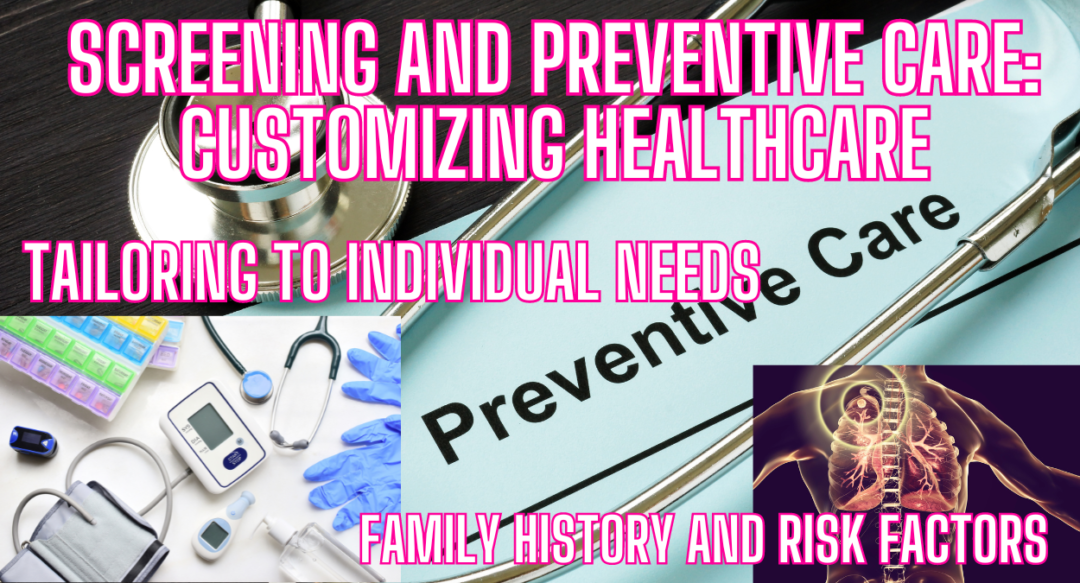
10. Screening and Preventive Care: Customizing Healthcare
Tailoring to Individual Needs:
Highlighting the importance of regular check-ups and screenings tailored to individual health histories ensures a proactive and personalized healthcare approach.
Family History and Risk Factors:
Discussing personal and family history helps in identifying potential risks and customizing healthcare plans.
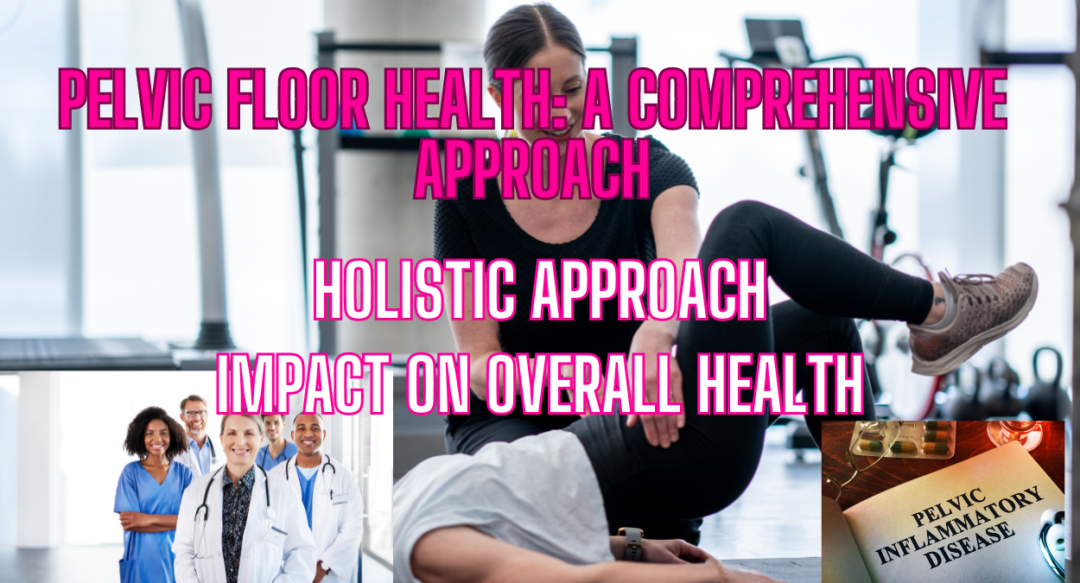
11. Pelvic Floor Health: A Comprehensive Approach
Holistic Approach:
A comprehensive discussion on pelvic floor health includes exercises, symptoms, and preventive measures for a holistic approach to well-being.
Impact on Overall Health:
Highlighting the connection between pelvic health and overall well-being reinforces the importance of addressing this aspect of women’s health.
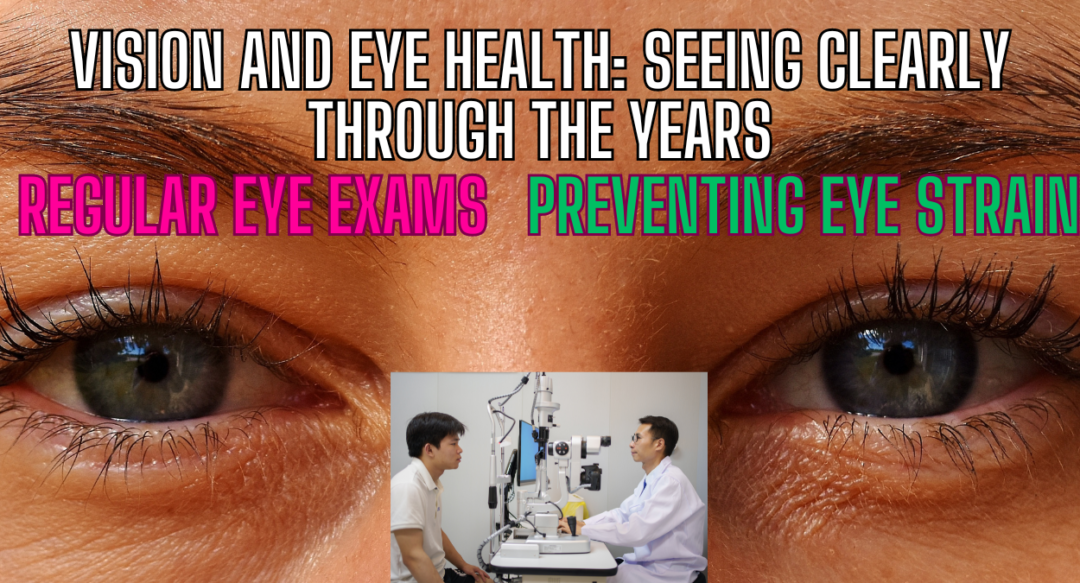
12. Vision and Eye Health: Seeing Clearly Through the Years
Regular Eye Exams:
As women age, regular eye exams become crucial for maintaining good vision and detecting potential issues early on.
Preventing Eye Strain:
Discussing strategies for preventing eye strain, such as taking breaks from screen time, supports long-term eye health.
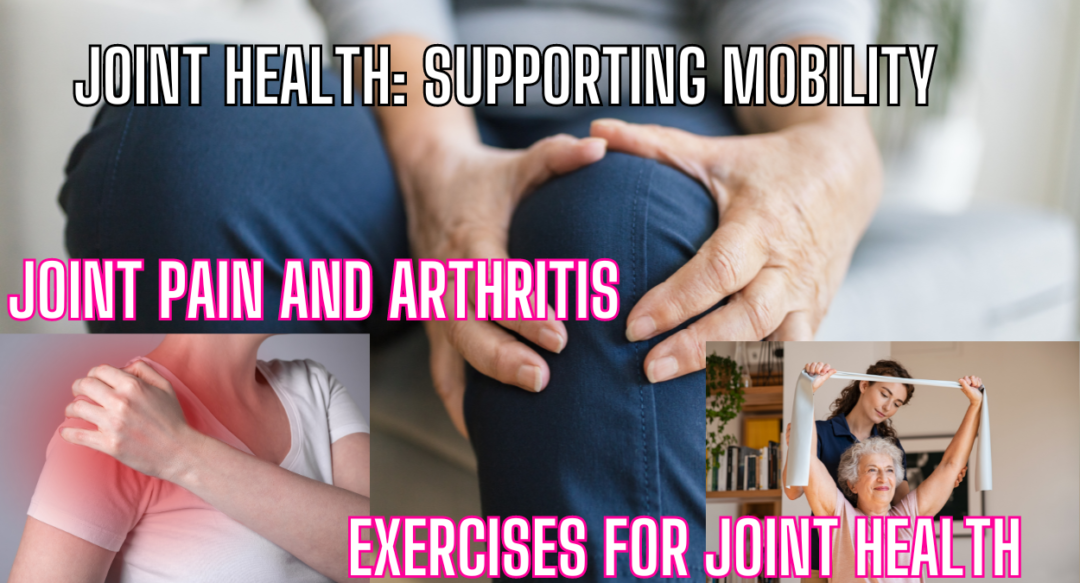
13. Joint Health: Supporting Mobility
Joint Pain and Arthritis:
Addressing potential joint pain and discussing strategies for managing arthritis ensures women can maintain mobility and an active lifestyle.
Exercises for Joint Health:
Providing guidance on exercises that support joint health contributes to overall physical well-being.

14. Skin Health: Aging Gracefully
Changes in Skin Elasticity:
Discussing the natural changes in skin elasticity helps women understand and embrace the aging process.
Skincare Tips:
Providing skincare tips, including sun protection and hydration, supports women in maintaining healthy and radiant skin.
In conclusion, turning 50 is a transformative phase in a woman’s life that brings both challenges and opportunities. Open communication with healthcare providers, addressing physical and emotional changes, and adopting a proactive approach to well-being empower women to navigate this journey with confidence.
What does turning 50 mean to a woman?
Turning 50 is a significant milestone for a woman, marking the transition into a new phase of life. This age carries various physical, emotional, and societal implications, and the meaning can differ for each individual. Here are some common aspects that turning 50 might signify for a woman:
1. Midlife Transition:
– Reflection: Turning 50 often prompts reflection on the life lived so far, accomplishments, and personal growth.
2. Physical Changes:
– Menopause: Many women around 50 may enter or be in the midst of menopause, signifying the end of their reproductive years and bringing hormonal changes.
3. Family Dynamics:
– Empty Nesting: By the age of 50, some women may experience an empty nest as their children leave home for independent lives.
4. Career and Achievements:
– Career Milestones: Women may assess their professional achievements and consider future career goals or transitions.
5. Health Awareness:
– Health Prioritization: Women at 50 often become more aware of their health, leading to a focus on preventive care and lifestyle choices.
6. Relationships:
– Reevaluation: This age might prompt a reevaluation of personal relationships, friendships, and romantic partnerships.
7. Self-Discovery:
– Embracing Individuality: Turning 50 can signify a period of self-discovery and a heightened sense of self-acceptance.
8. Societal Expectations:
– Reaching Milestones: Society often attaches certain milestones to turning 50, and women may reassess their lives against these societal expectations.
9. New Beginnings:
– Embracing Change: For some women, turning 50 represents the beginning of a new and liberating phase, embracing change with enthusiasm.
10. Wisdom and Experience:
– Accumulated Wisdom: Women at 50 carry a wealth of life experiences, contributing to a sense of wisdom and perspective.
11. Personal Goals:
– Goal Setting: It can be a time for setting new personal goals and aspirations for the future.
12. Emotional Resilience:
– Resilience: Having weathered various life challenges, women at 50 often possess emotional resilience and coping mechanisms.
13. Time for Self-Care:
– Prioritizing Well-being: Women may prioritize self-care, recognizing the importance of maintaining their mental and physical health.
14. Social and Community Impact:
– Community Involvement: Some women may feel a renewed sense of purpose by contributing to their communities or engaging in social causes.
15. Living Authentically:
– Authentic Living: Turning 50 can signify a commitment to living authentically, true to one’s values and desires.
Ultimately, the meaning of turning 50 is deeply personal and varies from woman to woman. It’s a time of introspection, growth, and potentially a renewed sense of purpose as individuals navigate this important juncture in their lives.
What Happens to a Woman’s Body When She Turns 50?
1. Menopause:
– The onset or completion of menopause is common around the age of 50. Estrogen and progesterone levels decline, leading to the cessation of menstrual cycles and various associated symptoms like hot flashes and mood swings.
2. Bone Health:
– Osteoporosis becomes a concern due to decreased estrogen levels, affecting bone density. Women are at an increased risk of fractures and bone-related issues.
3. Cardiovascular Changes:
– Hormonal changes can impact cardiovascular health. Blood pressure may rise, and there’s an increased risk of heart disease.
4. Metabolism and Weight:
– Metabolism tends to slow down, and women may experience changes in weight distribution, often leading to weight gain, especially around the abdomen.
5. Breast Changes:
– Breasts may undergo changes in density and firmness. Regular breast health checks, including mammograms, become crucial.
6. Vaginal Health:
– Estrogen decline can result in vaginal dryness and thinning of the vaginal walls, impacting sexual health. Lubricants and hormonal treatments may be considered.
7. Joint and Muscle Changes:
– Joint pain and stiffness may become more prevalent. Regular exercise and strength training become essential for maintaining mobility.
8. Vision and Eye Health:
– Vision changes, including presbyopia (difficulty focusing on close objects), may occur. Regular eye check-ups become crucial for maintaining eye health.
9. Cognitive Changes:
– Some women may experience cognitive changes, such as memory lapses. Maintaining mental stimulation through activities and a healthy lifestyle is important.
10. Skin Changes:
– Collagen production decreases, leading to changes in skin elasticity and the appearance of fine lines and wrinkles. Sun protection and skincare become crucial.
11. Digestive System:
– Metabolic changes can affect digestion. Dietary adjustments may be needed to address potential gastrointestinal issues.
12. Urinary Health:
– Pelvic floor muscles weaken, leading to an increased risk of urinary incontinence. Pelvic floor exercises and lifestyle changes can help.
13. Emotional Well-Being:
– Hormonal fluctuations can impact mood and emotional well-being. Stress management, support systems, and self-care become essential.
14. Sleep Patterns:
– Sleep disturbances, such as insomnia or night sweats, may occur due to hormonal changes. Establishing healthy sleep hygiene is important.
15. Screenings and Preventive Care:
– Regular health check-ups, screenings for cancers (breast, colorectal), and preventive care become crucial for early detection and maintaining overall health.
What Does a 50-Year-Old Woman Need?
1. Regular Health Check-ups:
– Comprehensive health assessments, including screenings for blood pressure, cholesterol, and diabetes, are essential.
2. Bone Health Management:
– Adequate calcium and vitamin D intake, along with weight-bearing exercises, help maintain bone density.
3. Cardiovascular Health Focus:
– A heart-healthy lifestyle, including regular exercise and a balanced diet, is crucial for preventing cardiovascular issues.
4. Breast Health Awareness:
– Regular self-exams, clinical breast exams, and mammograms are necessary for breast health.
5. Pelvic Floor Exercises:
– Strengthening pelvic floor muscles through exercises helps maintain urinary and reproductive health.
6. Sexual Health Support:
– Open communication with healthcare providers about sexual health concerns and potential treatments or interventions.
7. Vision and Eye Care:
– Regular eye exams and adjustments to correct vision changes are important for overall eye health.
8. Cognitive Stimulation:
– Engaging in mentally stimulating activities, such as reading, puzzles, or learning new skills, supports cognitive health.
9. Healthy Diet and Weight Management:
– A well-balanced diet rich in nutrients, coupled with regular exercise, helps manage weight and supports overall health.
10. Emotional Well-being Strategies:
– Developing coping strategies, seeking support, and maintaining a positive mindset contribute to emotional well-being.
11. Skin Care and Sun Protection:
– Consistent skincare routines and sun protection help address changes in skin elasticity and prevent premature aging.
12. Joint Health Maintenance:
– Regular exercise, including strength training, supports joint health and flexibility.
13. Digestive Health Considerations:
– A diet rich in fiber and hydration supports digestive health and helps prevent gastrointestinal issues.
14. Sleep Hygiene Practices:
– Establishing a sleep routine, creating a comfortable sleep environment, and addressing sleep issues contribute to quality rest.
15. Mental Health Support:
– Seeking counseling or therapy if needed and fostering strong social connections for emotional support.
As women reach the age of 50, prioritizing holistic health, adopting healthy lifestyle habits, and seeking regular medical care are essential components for navigating this phase with vitality and well-being.
Funny things that happen when you turn 50
Turning 50 can be a humorous and lighthearted experience, marked by a mix of reflections and funny observations. Here are some amusing things that people often find entertaining when reaching this milestone:
1. Birthday Candles: Suddenly, the birthday cake has more candles than cake. It’s a fire hazard waiting to happen, but hey, the more candles, the more wisdom, right?
2. Memory Lane: You start a sentence and forget where it’s going. Mid-sentence amnesia becomes a common occurrence, leading to some comical pauses in conversations.
3. Fashion Choices: Comfort takes precedence over fashion. Suddenly, elastic waistbands and sensible shoes become the epitome of style.
4. Groan-Worthy Puns: You appreciate a good “over the hill” joke and find humor in those groan-worthy puns about getting older. Embracing the laughter is key.
5. Selective Hearing: Selective hearing becomes a superpower. You can hear a bag of chips being opened from across the room, but somehow miss your spouse asking you to take out the trash.
6. Napping Enthusiast: Afternoon naps become a highlight of your day. The allure of a cozy blanket and a short siesta is irresistible.
7. Tech Troubles: You’re baffled by new technology. Suddenly, the TV remote control feels like a complex piece of alien technology, and you long for the simplicity of the “good old days.”
8. Younger Generation Lingo: You find yourself googling slang words the younger generation uses, realizing that staying “hip” requires some linguistic acrobatics.
9. Early Bird Specials: The excitement of scoring a good deal on an early bird special at a restaurant becomes a source of pride, and you willingly dine at 4:30 pm.
10. Gray Pride: You embrace your silver or gray hair and proudly flaunt it as a badge of wisdom. Hair dye? That’s so last decade.
11. Dad Jokes Mastery: Your repertoire of dad jokes reaches epic proportions, and you revel in the eye rolls and laughter they elicit from friends and family.
12. Party Animal No More: The idea of an all-night party sounds more like a punishment than a celebration. You’d much prefer a cozy night in with a good book and a cup of tea.
13. Sensible Gifts: You appreciate practical gifts over extravagant ones. Socks and slippers suddenly become highly coveted items.
14. License to Forget: Forgetting someone’s name is not just forgivable; it’s expected. You confidently claim the “I have a lot on my mind” excuse.
15. Superior Wisdom: You start sentences with, “Back in my day…” and genuinely believe your way of doing things was superior. Classic nostalgia kicks in.
Turning 50 may bring a few laughs and a whole lot of quirky moments. Embracing the humor in aging can make the journey even more enjoyable. After all, laughter is timeless, and age is just a number!
Why is My Body Falling Apart at 50?
Turning 50 often brings about changes in the body due to the natural aging process. Factors include:
1. Hormonal Changes: Women may experience menopause, leading to hormonal fluctuations and various associated symptoms.
2. Decreased Bone Density: Osteoporosis risk increases, making bones more prone to fractures.
3. Metabolic Changes: Slower metabolism can result in weight gain and changes in body composition.
4. Joint Issues: Joint pain and stiffness may become more prevalent with age.
5. Vision Changes: Presbyopia and other age-related vision issues can affect eyesight.
6. Muscle Loss: Sarcopenia, or age-related muscle loss, can impact strength and mobility.
7. Skin Changes: Reduced collagen production leads to changes in skin elasticity and appearance.
8. Cognitive Changes: Some experience cognitive changes, including memory lapses.
Can a 50-Year-Old Woman Be Sexually Active?
Absolutely! Many women in their 50s enjoy active and fulfilling sex lives. Factors influencing sexual activity include:
1. Hormonal Changes: Menopausal symptoms like vaginal dryness can be managed with appropriate treatments.
2. Communication: Open communication with a partner about desires, preferences, and any concerns is crucial.
3. Health and Wellness: Maintaining overall health through exercise, a balanced diet, and regular check-ups supports sexual well-being.
4. Emotional Connection: Emotional intimacy and connection with a partner play a significant role in sexual satisfaction.
Average 50-Year-Old Woman Face
The appearance of a 50-year-old woman’s face varies widely based on genetics, lifestyle, and skincare practices. Common features may include:
1. Fine Lines and Wrinkles: Due to the natural aging process and a decrease in collagen production.
2. Loss of Skin Elasticity: Skin may appear less firm, and the effects of gravity become more noticeable.
3. Sun Damage: Cumulative sun exposure can contribute to age spots, uneven skin tone, and fine lines.
4. Expression Lines: Wrinkles around the eyes and mouth may be more pronounced, reflecting a lifetime of expressions.
5. Eye Changes: Drooping eyelids or bags under the eyes may become more apparent.
Average 50-Year-Old Woman Body Shape
Body shapes at 50 vary, but common features may include:
1. Changes in Fat Distribution: A shift in fat distribution, often leading to increased abdominal fat.
2. Muscle Loss: Sarcopenia can result in a decrease in muscle mass, impacting overall body shape.
3. Posture Changes: Loss of bone density and muscle tone may affect posture and body alignment.
4. Breast Changes: Breasts may undergo changes in density and firmness.
5. Joint and Muscle Stiffness: Joint and muscle stiffness can influence overall body movement and flexibility.
Fun Facts About Turning 50 in 2023
1. Golden Jubilee: Turning 50 is often referred to as a golden jubilee, symbolizing a milestone of achievement.
2. Born in 1973: If turning 50 in 2023, you were likely born in 1973. In 1973, the first mobile phone call was made, and Pink Floyd’s “Dark Side of the Moon” was released.
3. In Popular Culture: The iconic movie “The Godfather” was released 50 years ago in 1972.
4. Social Media Boom: Turning 50 means witnessing the rise of social media, which started gaining traction in the early 2000s.
5. Half a Century: Celebrating 50 years means reflecting on five decades of personal history, achievements, and memories.
Average 55-Year-Old Woman Body
Similar to a 50-year-old, the body of a 55-year-old woman may experience continued changes:
1. Continued Hormonal Changes: Menopausal symptoms may persist, impacting various aspects of health.
2. Ongoing Bone Health Concerns: Continued attention to bone health is essential to prevent further loss of density.
3. Fitness and Mobility: Regular exercise becomes even more critical to maintain muscle mass and overall mobility.
4. Vision Maintenance: Regular eye check-ups and adjustments to vision changes remain important.
5. Emotional Well-being: Focusing on emotional health and stress management becomes integral to overall well-being.
Woman Turning 50 Quotes
1. “Turning 50 is like flying: hours of boredom punctuated by moments of sheer terror.” – Erica Jong
2. “Age is not measured by years. Nature does not equally distribute energy. Some people are born old and tired while others are going strong at seventy.” – Dorothy Thompson
3. “You’re not 50; you’re only $49.95, plus tax!” – Anonymous
4. “At 50, you’ve entered the wonder years: I wonder where I put my keys, I wonder where I parked my car, and I wonder what day it is.” – Anonymous
5. “Turning 50 means it’s only a matter of time before you’re offered a senior discount when buying cat food.” – Anonymous
In embracing the age of 50, humor and a positive perspective can make the journey more enjoyable. It’s a time to celebrate accomplishments, wisdom gained, and the adventures yet to come!
FAQs: Answering Common Questions
1. Q: Is menopause the same for every woman?
– A: No, menopause experiences vary. Factors like genetics, lifestyle, and overall health contribute to individual journeys.
2. Q: Are all hormonal changes during menopause negative?
– A: While hormonal changes bring challenges, they also mark the end of menstrual cycles and certain reproductive concerns for many women.
3. Q: Can I prevent osteoporosis after 50?
– A: Adopting a bone-healthy lifestyle, including exercise and proper nutrition, can help reduce the risk of osteoporosis.
4. Q: How often should I have a mammogram?
– A: The frequency of mammograms depends on individual health factors. Consult with your healthcare provider for personalized recommendations.
5. Q: Are there natural remedies for managing menopausal symptoms?
– A: Some women find relief through lifestyle changes, herbal supplements, and mindfulness practices. However, consult with a healthcare professional for personalized advice.


